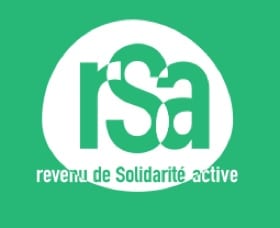 It could have celebrated its 20th anniversary by the end of the year, but the minimum integration income (RMI) risks being replaced as early as July 2009 by the active solidarity income (RSA), just like the single parent allowance (API) and the back-to-work bonus. It allows people who find a job to combine a small salary with a part of the allowance. Its objective? To promote a return to employment and reduce poverty.
It could have celebrated its 20th anniversary by the end of the year, but the minimum integration income (RMI) risks being replaced as early as July 2009 by the active solidarity income (RSA), just like the single parent allowance (API) and the back-to-work bonus. It allows people who find a job to combine a small salary with a part of the allowance. Its objective? To promote a return to employment and reduce poverty.
As proof, the RSA was tested in 34 departments and the results are encouraging. Indeed, in the Alpes-Maritimes, 26 employment contracts have been signed since April 2008 out of 143 beneficiaries. For Jean-Marc Martoglio, general secretary of Secours Populaire 06: “It is a very good step forward, but it does not solve all the problems. Solutions still need to be found, such as social housing or employment opportunities”. For him, there is only one fear, that of “being trapped by the system.”
<h2>3.7 million people affected</h2>
The government has not yet determined the rate of combination between salary and allowance, but it should reach 62% of the salary. According to Martin Hirsch, in an interview with La Tribune, the RSA will allow “about 100,000 additional RMI recipients to find a job in the next 18 months”. French people over 25 years old (or with a dependent child) who are beneficiaries of social minimums and the working poor earning less than 1,373.86 euros gross per month will be able to benefit from this scheme. In total, 3.7 million people are concerned.
<h2>50% of households will not contribute</h2>
For financing, the state has planned to introduce a new tax of 1.1% on capital income starting from the beginning of next year to offset the additional cost of 1.5 billion euros. Life insurance, stocks, and rental income are affected. Thus, 35% of French people would pay less than 20 euros per year, 15% at least 20 euros, and 50% of households would be exempt. The RSA calls for the solidarity of the French, but some people from Nice see the injustice of the system, like Chantal, a saleswoman: “It is once again the modest incomes that are going to be taxed, and the richest will be exempt thanks to the tax shield”. For Emilie Barrer, a 29-year-old business owner, the solution to finance this system would be for “the state to reduce its unnecessary expenses, like their grand soirées at the Élysée”. At the time of reforms, are all ideas worth considering?


